 This author interview shares advice from published author Christopher Long. To learn more about Christopher, visit his website.
This author interview shares advice from published author Christopher Long. To learn more about Christopher, visit his website.
Q: What inspired you to start writing?
Long: It happened accidentally. I had spent much of my life playing in bands. That’s where I first met Michelle Campanelli, back in the local music scene in the late eighties and early nineties. As I got a little older and got into my thirties, I realized that those Rockstar aspirations were maybe not going to transpire. Then, I began writing local music reviews for a small hometown publication in Melbourne. Turns out, I developed a bit of a knack for that and then started receiving opportunities to write similar type features for larger publications. While that was happening, I was spending some time working for major rock bands. My band at the time, our shelf life had expired. But I was getting some fantastic opportunities to work for platinum-selling world-famous rock stars. Also, I was simultaneously writing for entertainment publications and would receive music-based books to review. I would often get a little frustrated because it seemed like some of those stories weren’t nearly as compelling as what I was experiencing firsthand.
I decided to write my own book to share my personal music stories. That is what led me to write books. My first book, A Shot of Poison, was published 10 years ago. From that point on, I received bigger and better writing opportunities, cooler and crazier life experiences that I never expected.
Writing and publishing a book is sort of like getting a tattoo; you think you just want to get one to make your statement. Then, the next thing you know, you’re addicted and get more art on your body. That was my experience with writing. The more opportunities I got, the more I wanted to write. Through those writing experiences, I was inspired to write my first book, I’m currently working on my fifth. So, working in the writing industry was not planned. I didn’t see it coming, but once the opportunities presented themselves, I answered that call.
Q: What does your writing process look like?
Long: Everybody has their own process. Something that disturbs me about writing and the publishing world is the arrogance behind industry standards and a one-size-fits-all perspective. While that ideology may apply to a certain extent, I think writers have to find their own path. So, what works for me may not work for others. With that, my process really requires writing every day to keep those chops sharp. I am always fully immersed in the writing world. Regardless of the project, I never put out any content willy-nilly. Also, it’s been said a lot, and it’s really true to being a writer, you’ve got to be a reader. I continuously read and allow myself to be inspired by other writers. Much of my creative process is looking at other writer’s work. With that, it’s important to be humble and honest enough to know where my shortcomings are and be willing to learn from other people’s talents.
Q: What is the most difficult aspect of writing for you?
Long: For me, it’s just clearing my head. It’s a constant process; life is surrounding you. You have bills to pay, a pandemic going on, social unrest, family issues, dogs to feed, all those distractions of life. The most challenging thing for me is finding a quiet place and time to clear my head and focus on the story I’m trying to tell.
Q: Writer’s block, do you get it? If so, how do you work past it?
Long: You can’t force it. My latest book, Superstar, was my first adventure into fiction. That book was five years in development. During that time, I actually went through a very frustrating two-year writer’s block spell. There was just nothing there. I just hit a wall. For two years, I couldn’t even open that word doc. But I realized that I had not yet gone through the experiences that I needed to experience to bring me to the conclusion of the story.
So, you can’t force it. You just clear your head and move onto other projects. I wrote a whole new book during the writer’s block of Superstar. Rather than beating yourselves up, just move on to something else until that door opens up again. If you force it, the quality of your content will be compromised. I know what it’s like to have work published that was rushed, and your audience knows it. Once that genie’s out of the bottle, you can’t put it back in. When Superstar came out, I knew that I took my time and did the best work possible. At the end of the day, you have to account for yourself. You need to know in your mind and heart that you did the best work that you could; that is not something that can be forced.
Q: Where did you draw inspiration to write your most recent book, Superstar?
Long: I had written a couple of nonfiction books. My first book, A Shot of Poison, was based on my experiences working as a personal assistant for a famous world rock band tour. When that book was released, I experienced something of a transformation – a spiritual awakening. I found myself less intrigued by the rock and roll lifestyle and more inspired by my newfound faith perspective. I went back to college and obtained my degree in Bible Studies. I became involved in missionary work and serving the church.
My second book reflected those types of experiences, the same guy, but two drastically different stories. After my second book came out, one of the gals in my college class told me she read my latest book, and it was great but that I was missing my target audience. She repealed to me how God had spoken to her and told her that my future my audience was not going to be in Christian Nonfiction. My audience was going to be in Christian Fiction.
At that time, I wasn’t even aware of the genre. She said that if I took all my crazy rock and roll stories from the past and combined them with my current perspectives that I would have a compelling fictional story. I said, well, I don’t do fiction. I’m a journalist. I’m a reporter. I go out in the trenches and experience things and then come back and report what I see. She figured I would say that. Then, she proceeded to open her big canvas soccer mom bag and pulled out resources that she had gotten from the library on the Christian Fiction genre. She also pulled out of a Christian Fiction book, Full Tilt, by a very successful Christian Fiction author named Creston Mapes. She said, God spoke to me three times, told me to go to Barnes and Noble, and give you this book—which was pretty overwhelming.
After reading the book, I thought holy cow this is the blueprint. So, I took all those crazy experiences of when I was on tour with rock stars, changed the names, funneled it through a faith message, and fictionalized the whole thing. Rock and roll was dead. However, people are wildly passionate country music. By fictionalizing this story and designing my main character as a hunky guy in a V-neck with a cowboy hat and acoustic guitar, I had a country music story. Now it’s fresh and very relevant because there’s nothing in Superstar that I did not experience personally. In a way, I kind of cheated because I really didn’t have to make up anything. I just went through my old diaries to put a fictional spin on things, which was a five-year process.
Q: Many new writers equate publication to success. What does success mean to you? What is the definition of success?
Long: I’m lucky those terms, in that I have different writing avenues. I have my own website and social media platforms. Crafting a small booklet for those platforms and then know that people are reading and responding to my work is a success. Also, writing for various publications and receiving feedback is very gratifying. With writing books, there is success in just getting the work finished, bringing something to a complete conclusion. The second half of that success is bringing your book to market and seeing if people will accept or criticize your work.
Q: What advice would you give a new writer, someone just starting out?
Long: Don’t be discouraged, be diligent. Today, no one can stop you from being published; you don’t require the industry support you once needed. Explore self-publishing and traditional publishing. Don’t be naïve; a lot of people are out to scam writers. Immerse yourself in the writing world; go to speaking engagements and book events. Do your absolute best work. Don’t beat yourself up, thinking that your work is never good enough. Align yourself with quality writers.

Q: What are you reading now?
Long: I just finished reading Let My Daughter Go by Creston Mapes.




